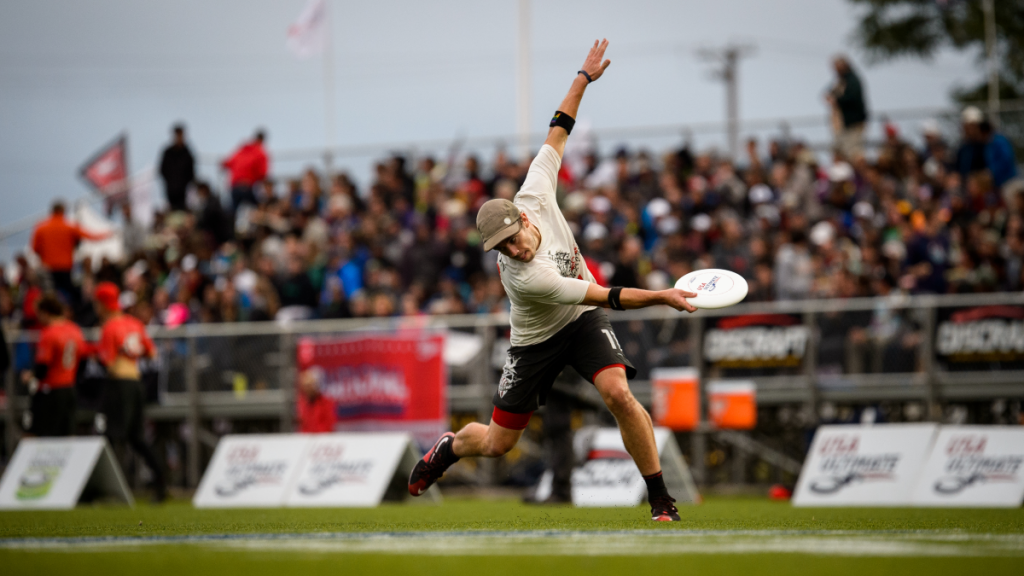Originally published at: https://discgolf.ultiworld.com/2020/03/04/ultimate-disc-golf-form-follows-function-pt-2/
This is part two in our series on learning to play disc golf as an ultimate player. The series is presented by Innova Discs, the Choice of Champions!
In ultimate and in disc golf, form follows function.
When I learned to play ultimate at Amherst Regional High School, coach Tiina Booth would start practices by having all of us stand in parallel lines 10 yards apart facing each other. She would call out “Inside-out1 backhands!” or “Flat forehands!” and watch as we cycled through a variety of throws and angles. Over and over again I’d hear, “Step out!” as in, when throwing a right-handed backhand, pivot out to the left, perpendicular from the receiver, and release low and away from your body. That was the form. The function was to break a mark.
When Brent and I were throwing in that lacrosse field, that was how we were throwing. As daylight shortened going into October, we would find ourselves back at his house earlier in the evening and we’d fill the extra time watching disc golf tournament footage he’d found on YouTube.
At some point, it dawned on me, while watching players throw their approach shots, that disc golfers were standing straight up. Their feet weren’t split away from each other: they were aligned towards the target, almost like a batter’s stance. It seems silly now, but it was a revelation at the time: there’s no mark to break! In disc golf, there is no function in stepping out the way I had been trained to do, the way my muscle memory wanted me to do. Similarly, I noticed how their “swings” would carry the disc through close to their chests, as opposed to the extended-arm release necessary to avoid getting blocked by a mark. They weren’t throws. They were pulls.
The next few times out at the lacrosse field, I tried to implement some of these changes. Instead of breaking a mark, I was pulling. Suddenly, my cleats were clunky, catching in the ground as I tried to slide my right foot forward and churning into the grass as my follow-through momentum tried to spin me around my toes. Even so, the discs were suddenly flying straighter and longer before crashing out to the left.
The same philosophy works on the forehand side, too. Think of Mike Grant dropping 80-yard flick pulls into the back corner (I don’t care if Brodie Smith is the more contemporary reference: Grant was a god when I was in high school). His body wasn’t open towards the field when he did so; it was closed like a baseball swing, facing the sideline.
Here’s the second tip for ultimate players picking up disc golf: Don’t throw golf discs; pull them. I’ll have more to say about disc selection, release angle, and all that stuff coming up, but, for now, let’s take it one thing at a time. Stand up straight and keep tinkering for a flat flight. I’m confident in you; every field session you put in will reveal some tips you’ll figure out on your own.
hyzer ↩

